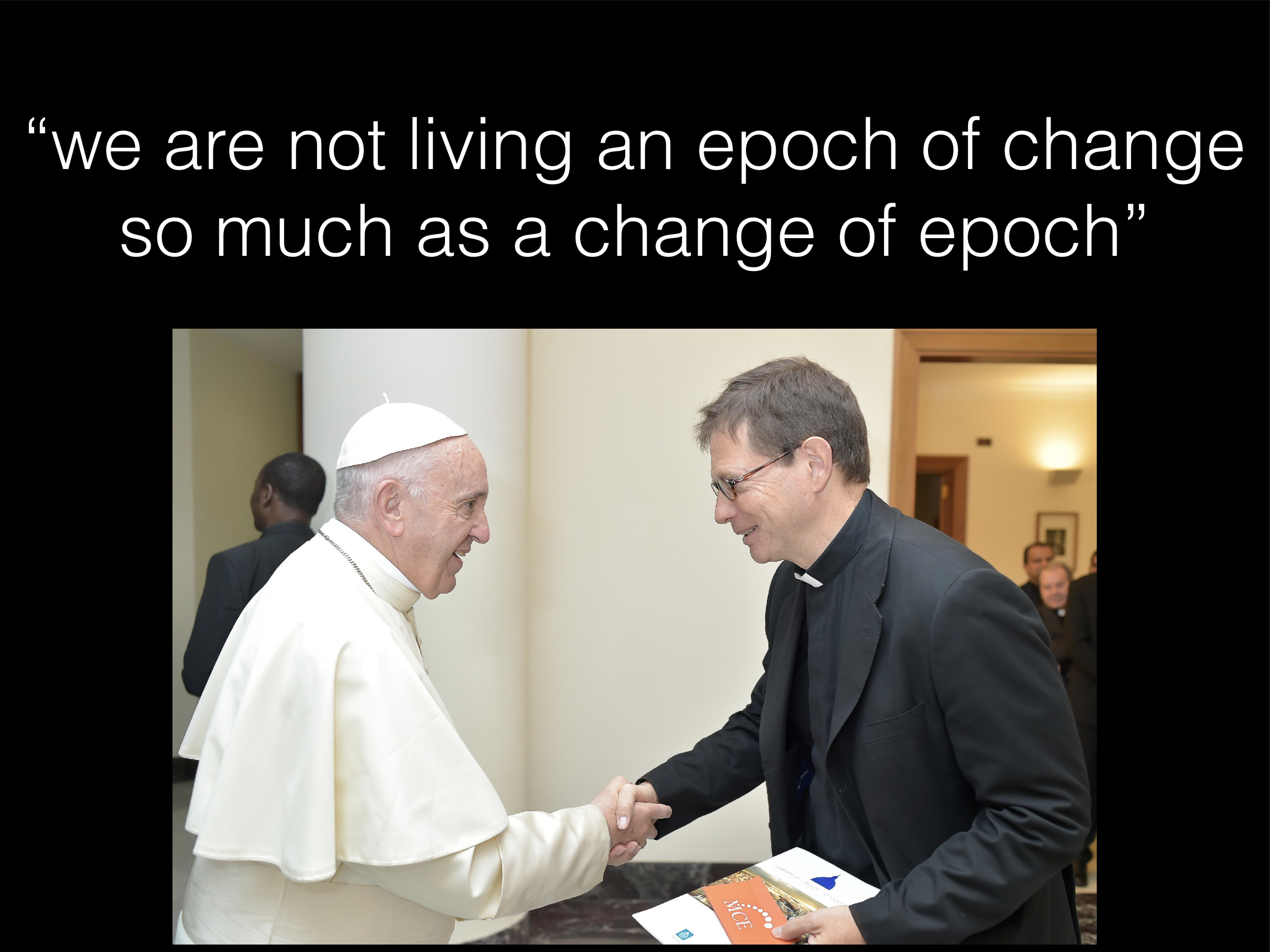The Theological Foundations of Church Management

On February 2020, Rev. Robert A. Gahl, Jr., Vice-Chair of the Program of Church Management, held a Lectio Magistralis on The Theological Foundations of Church Management. Here you may find a short summary and the full video of the Lectio.
Lectio Magistralis
Inaugural Lecture PCM 3rd Cohort
Rev. Robert A. Gahl, Jr.
February 10, 2020
The Program of Church Management offers at once a theological framework and the necessary skills to manage the Church – including the people, with their immortal souls, so as to most effectively achieve the Church’s aim: that Christ might rule in and through all things, to direct them to God the Father.
The Church is the longest standing business enterprise in history. The Mystical Body of Christ is a corporation, composed of the faithful of Jesus Christ. Moreover, the Church is a for-profit corporation that aims to win souls for Christ by means of wisely employing her temporal resources. The Church’s mission to save souls and to strive for sanctity, although supernatural and therefore to some extent intangible, may be measured through quantifiable indicators of spiritual goods: for example, baptisms, weddings, reception of Holy Communion, intensity of belief, witness of virtue and even processes of beatification. By measuring select indicators and standards, we can make interventions and verify before and after, so as to determine performance, always in view of making the most of the talents the Lord has given us.
The main objective of PCM is not to make managers out of those who participate, but to free up the participants, especially the clergy, from their time spent in the office so as to dedicate more time to the sacramental ministry, on account of being able to more effectively entrust and delegate to the lay faithful.
Another aim of the Program is that the Church might be exemplary for the implementation of Catholic Social Teaching: just wages, transparency, subsidiarity, solidarity, competence, overcoming corruption, freedom and autonomy of workers. All of these principles need to be implemented in an exemplary fashion and through a spiritual perspective while at once elevated by grace in Christ.
Pope Francis teaches that we are living an historical moment of epochal change. To achieve the reform of holiness, each of us baptized must tell the story of Christ with our lives so that the Church may eloquently express the divine comedy by all of her daughters and sons living together the mystery of Christ as characters in a story on the stage of the world performing anew the divine comedy that is the Paschal mystery. Pope Francis challenges us by explaining that “the Gospel, the living book of God’s mercy... must be continually read and reread.” Even though the Gospel still has “many blank pages left. It remains an open book that we are called to write in the same style, by the works of mercy we practice. … What are the pages of your books like? Are they blank? May the Mother of God help us in this. May she… give us the grace to be living writers of the Gospel.”
Now, if this is true of us individually – that each of us are characters in a great story and that we’ve been chosen by God to write the Book of life – it’s also true of us as a community, as an organization, as a Church. Our mission and identity should be a story which indicates that we’re on a journey enlightened by the Gospel.
Saint John Paul II drew some implications for Church governance from Vatican II to emphasize that clergy are ordained to serve and thereby proposed what I like to call “inversion of hierarchy”. While still Archbishop of Krakow, John Paul wrote that “kingship, whether natural or supernatural, are comprised in human and Christian morality. Both of them constitute the very root of that morality” (Sources of Renewal.) John Paul elucidated Vatican II’s powerful proposal to overcome clericalism by turning upside down the worn out idea that laity are called to serve the hierarchy. Consequently, the Program of Church Management proposes to offer effective skills to live one’s vocation with accountability to the whole Church and the spirit of poverty so that we should all make the best use of the limited resources and the unlimited, supernatural resources, in order to achieve the unlimited aim of the Church. If we’re looking for an ethics of Church management it should be an ethics of kingship. Such kingship requires three components: 1) zeal and hunger for the kingdom, 2) a personal life of authenticity by living out the life of Christ in our personal situation, and 3) enacting the kingship of Christ through our lives by letting Him rule in and through us and our institutions.
Chapter 3 of the Gospel of John reports the following words of Jesus that are crucial for implementing best management practices in Church affairs: “The light came into the world, but people preferred darkness to light, because their works were evil.” We must counteract the sad rejection of the light. We want to accept Jesus and His light in the most exemplary and paradigmatic way in and through Church institutions, so that nothing is hidden with respect to the Church’s management of her temporal goods.
In Christ, with our love for the Church, we want the Church to be resplendent with beauty and to be the paragon of justice and transparency which lets the light of Christ shine, as actively and heroically portrayed by Our Blessed Mother, Mary.
Sezione:

